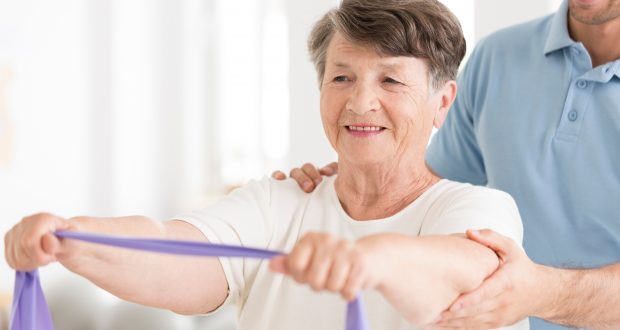The love and support of family is crucial in the recovery and rehabilitation of a stroke patient. Here are some tips that can help you care for a loved one who is recovering from stroke:
Empower yourself with knowledge. Talk to your loved one’s doctor about specific instructions on how to care for a stroke patient at home, including diet and medications. Ask how the stroke recovery and rehabilitation process will proceed.
Know your loved one’s needs and prepare to meet them. Stroke often results in significant disabilities, so be ready to help your loved one cope with these challenges. Assist your loved one with personal care such as bathing and dressing; coordinate daily medications as well as doctor and rehab appointments; and help your loved one maintain and increase his or her ability to function.
Make your home safer. Ask an occupational therapist whether you need to make changes in your home to make it safer. This includes moving the bedroom to the ground floor to avoid stairs or installing grab bars in the bathroom and shower.
Monitor changes in behavior or mood. Suffering a stroke can be emotionally and psychologically devastating. Inform the doctor if your loved one is having a hard time coping with stroke.
Be on the lookout for depression. Up to half of stroke survivors develop depression, which can hinder recovery and rehabilitation. Work with your loved one’s doctor in developing an action plan to address depression.
Join a patient support group. Caring for a stroke patient is physically and emotionally draining. Talking with other caregivers can help you recharge and provide an opportunity to share resources and caregiving tips.
References:
https://www.webmd.com/stroke/features/stroke-recovery-tips-for-the-caregiver#1. Accessed 8 January 2020
https://www.stroke.org/en/help-and-support/for-family-caregivers/15-things-caregivers-should-know-after-a-loved-one-has-had-a-stroke. Accessed 8 January 2020










